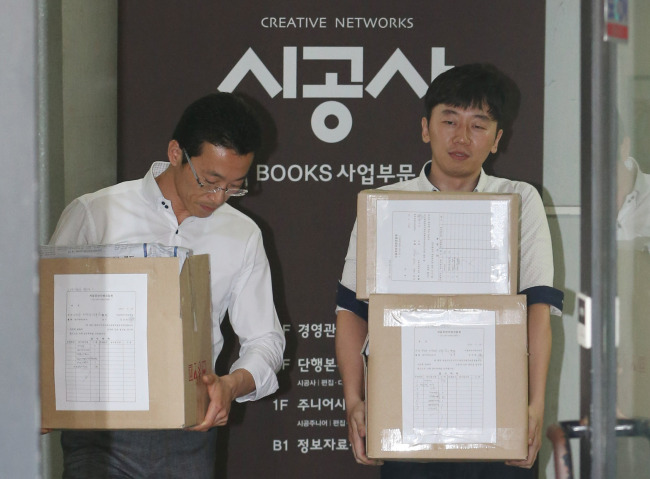Prosecution raids Chun’s home, son’s businesses to collect fines
By Korea HeraldPublished : July 16, 2013 - 20:54
The prosecutors working on collecting outstanding fines from former President Chun Doo-hwan raided his home and other locations connected to him including companies operated by his eldest son.

The investigators are said to have secured a significant amount of cash and cashable items from his home in the raid aimed at seizing assets. Items found at his home include a number of valuable paintings. If proven to belong to Chun, the paintings will be reverted to the treasury.
In the raid, the prosecution deployed around 90 investigators including those from the National Tax Service to a number of locations including Chun’s home, the office of the publishing company Shigongsa and Herb Village. Shigongsa and Herb Village are owned by Chun’s eldest son Chun Jae-kook. Herb Village is estimated to be worth about 20 billion won ($17.9 million)

In addition, the real estate development company operated by Chun Jae-wook, Chun’s younger son, was also raided. In 2004 Chun Jae-wook has been found guilty of evading taxes on bonds his father gave him and was sentenced to a three-year suspended sentence and 6 billion won fine.
As for Chun Jae-kook’s businesses, the investigators confiscated documents, accounting records, computer hard drives and other materials to look for further evidence of Chun hiding his assets under borrowed names.
Chun has been suspected of hiding his assets under the names of his children and other family members since the 1990s. Members of the Chun family are alleged to have made several large real estate purchases immediately after his fines were finalized.
In 2003, Chun claimed that he only had about 290,000 won in cash, despite having billions of won in outstanding fines.
The younger Chun has also been shown to have established a paper company in the British Virgin Islands, into which a part of the former president’s slush funds is suspected to have been invested.
In 1997, Chun was sentenced to life in prison and ordered to pay 220.5 billion won in penalties for leading an insurrection and accepting bribes while he was in power from 1980 to 1987. Of the total, 167.2 billion won remains outstanding.
With the statute of limitations on collecting Chun’s fines set to expire in October, the National Assembly revised the Act on Special Cases Concerning Forfeiture for Offenses by Public Officials in June.
The revision extended the statute of limitations for collecting fines from government officials from three to 10 years, and allows the authorities to confiscate assets held under borrowed names.
By Choi He-suk (cheesuk@heraldcorp.com)
-
Articles by Korea Herald



















